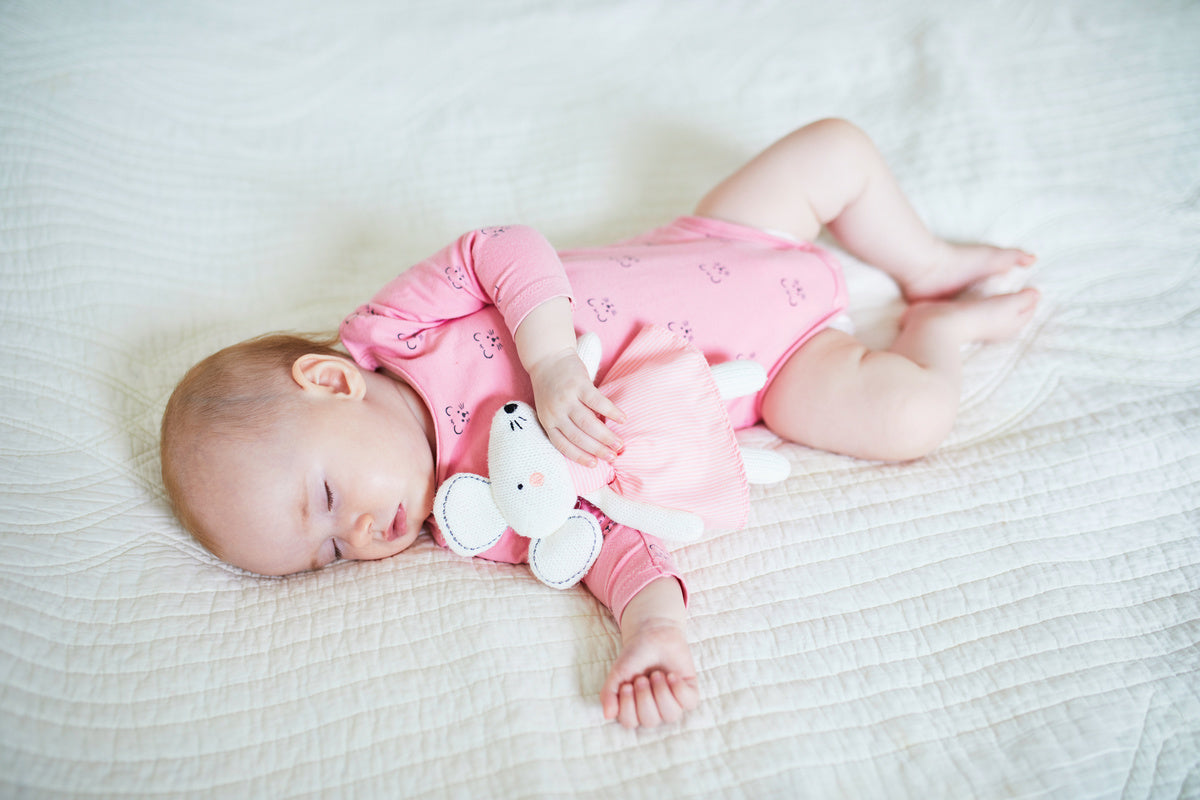Nighttime Rituals Part 2: Rituals for Babies

Nighttime Rituals for Babies
Infants and very young children may not have regular sleep rhythms yet. When babies are born, they tend to sleep and wake for short periods during both day and night, waking to eat every few hours. Eventually, babies will begin to consolidate their sleep into at least two daytime naps (one in the morning and one in the afternoon) plus a full night’s sleep.
Even once infants begin to consolidate their own sleep patterns, they may continue to play havoc with their parents’ needs for sleep. Some parents even endure day/night confusion, where babies who have finally consolidated their sleep into longer stretches find themselves sleeping during the day and feeling wide awake and ready to play in the middle of the night.
Setting Up a Nighttime Ritual for Your Baby
Regular, habitual nighttime rituals can help your little one’s body relax for sleep. For a child who is just beginning to develop a natural circadian rhythm, nighttime rituals can help strengthen the desire to go to bed at a particular time every night. Here’s what you can do to help your baby relax for sleep:
- Give a warm bath. Lavender or other soothing bubble baths/oils made specifically for infants may help your little one relax and feel drowsy. Just don’t wash your baby’s hair; you don’t want to send her to bed with wet hair or wake her up with vigorous towel-drying or a hair dryer.
- Rock or walk. Rocking or walking with your child can help even a fussy baby settle down. Just put your baby in her crib before she’s completely asleep, so that she learns to fall asleep in that environment instead of on you.
- Sing or play soothing music. Even very small babies react to the sound of music. Quiet singing or instrumental music can help keep a baby’s attention as he drifts toward sleep.
- Read. Even at a very young age, your baby is learning the patterns of speech through listening to your words. Reading a book is a quiet activity that can help your child learn and relax at the same time.
Even very young infants form habits, and those habits are stronger based on the situation an action is performed in. That can be both a positive and a negative factor for a parent teaching sleep habits. If you do the same actions before bed in order, at the same time, every single night, your baby’s body will become tuned to getting sleepy based on those cues.
On the other hand, if your child gets used to falling asleep on your shoulder or in a rocker, she learns that that environment is what she needs to fall asleep. When a baby tuned to these sleep cues wakes up during the night, she’ll need those cues to fall back to sleep—which means you’ll have to get up to give them to her. If she’s used to feeling peacefully groggy in her own bed and drifting to sleep there, she’ll be more likely to fall back to sleep in that same environment when she wakes in the wee hours.
A Dose of Common Sense…
Of course, young infants need to feed during the night, and may need to be changed or simply know their parents are nearby. Don’t allow a child to cry endlessly during the night or leave a child awake in the crib for long stretches—just cultivate the greatest chance that your baby will be able to feel peaceful in her own bed, safely.
Author Bio: +Michelle Gordon is a sleep expert who researches and writes about sleep and health, and is an online publisher for the latex mattress specialist Latexmattress.org.


